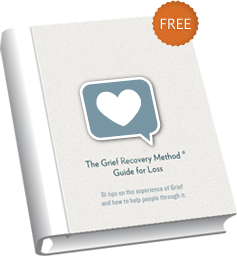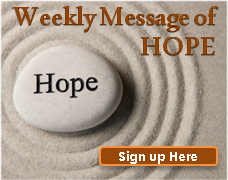

John W. James
Founder of The Grief Recovery Institute®
Co-Author of The Grief Recovery
Handbook & When Children Grieve
 March 19th, 2015
March 19th, 2015
Death of a Less-Than-Loved One, Hopes and Dreams
In this tenth installment of the Tributes.com Grief Recovery Webinar Series, Russell Friedman, the co-creator of The Grief Recovery Method, gives helpful guidance for grieving people who are dealing with the death of a "less than loved one".
When preparing the Revised Edition of The Grief Recovery Handbook, our editor questioned our use of the phrase "less than loved one". She was stuck on the simple phrase, "When a loved one dies", and had never considered the dimension of grief someone might experience when someone who should have been a loved one - but wasn't - dies.
In our 35 years of helping grieving people, a substantial percentage of them were confused by the grief they felt when someone who had mistreated them died. That someone was often a parent or other family member, who had caused them great harm, physically, mentally, or emotionally.
Hopes, Dreams, and Expectations
As illogical or even as naive as it might seem, many people who were badly mistreated harbor a hope that someday the person who had harmed them would acknowledge having done so, and come forward and apologize to them. That rarely happens.
Rather than feeling relief or other positive feelings, many people are confused to discover a painful level of grief at the death of the person who had harmed them. They don't realize what is causing them to feel that way, and many even feel they've betrayed themselves for having any feelings other than "good riddance".
- The death robs the possibility of repair of the relationship that had never been good.
- The death ends the hope that there could be something of value with that person.
- The death ends the possibility of an acknowledgment from that person of what they'd done to you.
- The death does not end the negative or painful feelings about the person who harmed you.
Completion is Possible
In spite of a sense of despair that the death has robbed you of the possibility of a direct interaction with the person who harmed you, the fact is that all completion must be done indirectly.
Even if the person was still living, it is unlikely that you would be able to have an open and honest communication with them about what they'd done to you. Most typically, they either wouldn't talk about it, or would continue to deny that it happened at all.
Please watch this important webinar. It will:
- Help you become aware of any grief-related myths that may be keeping you stuck.
- Encourage you to take actions to complete what is left emotionally unfinished for you.
- Help you to move forward in your life in spite of what happened in your past.






